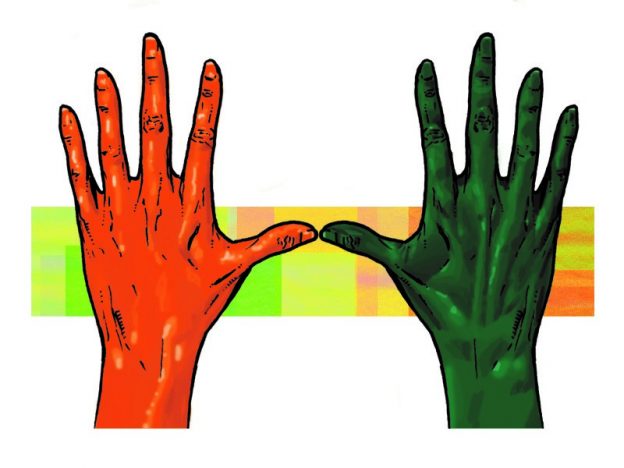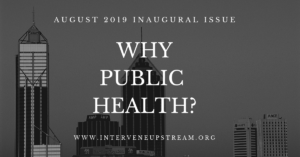The Early Years
You can’t put public health students in a box. But I think it’s safe to say we all share a vision of a healthier future. My vision started to come into focus in the early 2000s. After graduating from college in 2007 with a bachelor’s degree in biology, I spent the next decade working at disease advocacy organizations. These relatively small nonprofits (Genetic Alliance had only 10 employees when I started; the Parkinson’s Foundation had about 100 when I left) satisfied my admittedly grandiose yearning to make a difference in the world. Fortunately, this was not just an abstraction. Throughout my career, I have been lucky to regularly meet people who thank me for my work – for example, the woman who told me that the Aware in Care hospitalization kit she received from the Parkinson’s Foundation (a project I oversaw) convinced doctors to take her seriously and avoid prescribing a contraindicated medication to her husband with Parkinson’s when he was admitted to the hospital after a fall. Equally valuable were the people who told me what more I could do for their families and communities.

At the same time that these positions helped me make a positive contribution to individual and public health, they offered me the autonomy to figure out what I like to do and where I excel. In college, I sowed my intellectual oats, taking classes in nine departments my freshman year at Brown. A course on animal behavior inspired me to be a biology concentrator, but it was my engagement with wide-ranging academic disciplines that gave me a broad understanding of health issues and an appreciation for the value of a multidisciplinary approach to addressing them.
The “Aha” Moment
As I entered the workforce and progressed in my career, what had been lingering all along became clear in the projects I developed and most enjoyed: I have a knack for translation. Not English to Spanish or Portuguese (though I can hold a conversation in both); rather, I seek to bridge more fundamental communication gaps. Turn a doctor’s text into a layperson’s guidebook. Humanize the patient voice for a researcher. Adapt an educational booklet to be culturally relevant for multiple, diverse communities. Provide scientific reinforcement for a desperate caregiver’s demands of the healthcare team.
This skill and experience led me to the University of Miami Master of Public Health-Master of Public Administration (MPH-MPA) joint degree program, where I enrolled in January 2019. Exploring the courses, professors, and research opportunities available through the program is illuminating the thread that has connected my academic life and professional roles to date, and helping me to visualize the ultimate tapestry of my ambitions.
The Connections
On the public health side, I am eager to study health communication with an interdisciplinary, multimedia focus to complement and expand on my experience in that area. For example, as Director of Education at the Parkinson’s Foundation, I relied on the subject matter expertise of peers so that the resources I produced were evidence-based, useful, and understandable for my primary audience – individuals and families affected by Parkinson’s – and also for the range of healthcare professionals and other service providers supporting and working with the Parkinson’s community. In addition, I implemented a multimedia approach to the development and dissemination of our educational material. All new print resources had an online component and vice versa, to provide people with the information they need, when they need it, in the format most convenient for them. Moreover, this allowed us to layer our offerings, providing short and/or basic content as an introduction (e.g., a “Parkinson’s 101” seminar or 15-minute podcast), followed by increasingly in-depth content (e.g., an hour-long webinar or 40-page booklet) for more curious, informed, or sophisticated users.

On the public administration side, I have witnessed people in leadership roles at the organizations where I worked exercise the skills that are the inevitable product of the MPA curriculum – from budget and financial management to personnel administration to productivity improvement. I have also experienced leaders who would have benefited greatly from formal training in these areas. My coursework so far has emphasized the necessity of both “doing things right” and “doing right things.” This focus on quality and ethics is equally present in the public health sphere, and the desire to do both has been a constant motivator throughout my career, as reflected in the projects and partnerships my colleagues and I chose to pursue. Working in the disease advocacy space, pharmaceutical sponsorship can be a boon and a burden. We carefully analyzed each proposal to ensure that the product would be of real value to our constituents, not just our bottom line, and that we were not betraying the community’s trust.
The Confession
But I have a secret to confess. I would not have enrolled in this program were it not for another, less idealistic, driver of my pursuit of graduate studies: tuition remission. Because let’s be honest: graduate school is not cheap. Beyond finances, it involves a significant investment of time and effort. I greatly admire people who have that burning fire inside them, who know beyond a reasonable doubt what they want to study and how they want to put that knowledge to use. I never had that flame. I’d often flirted with the idea of returning to school, but I guess I never wanted it badly enough to fully commit, until the tuition remission benefit made the opportunity cost of not going back to school too high.
I was fortunate to be eligible for this benefit because last year I took a position in research administration at Sylvester Comprehensive Cancer Center, part of the University of Miami Miller School of Medicine. Not only that, the role gave me the opportunity to pursue a career in a field and at an institution that are extremely meaningful to me – my father was treated for, and ultimately passed away from, cancer here at Sylvester. I think he’d be pleased and proud to see me now, working to advance cancer research and advancing my own education in the process.

The Future
With two semesters under my belt (and 11 to go – getting two master’s degrees part-time is a long, slow road), I am excited for the potential graduate studies holds. The MPH and MPA programs provide distinct but complementary techniques and applications for the work I have been doing for more than a decade. In addition to health communication, access to care and ethical issues in healthcare policy-making are topics of particular interest to me. They’re also the link between my excitement about the MPH and my desire to pursue an MPA. Cultural, economic, physical, and social barriers to quality healthcare abound, and I believe that the joint degree will position me to assume a leadership role in designing, implementing, and analyzing policies and programs to make a measurable impact in these areas.
I am grateful for the opportunity to pursue graduate education and for the good fortune that my institution offers a joint program that so precisely matches my skills, experience, interests, and goals. I look forward to the intellectual satisfaction and personal and professional gratification to come from being better equipped to make a tangible, positive impact on the world.
I am also eager to learn more about my graduate school colleagues. Intrinsic, extrinsic, achievement, power, affiliation, expectancy – there are so many types of motivation across and within individuals and groups (and I am learning all about them in my MPA courses). There is no one-size-fits-all explanation of why we’re here. But we’re here, so let’s make the world a better place. I shared my story. What’s yours?
- What’s Your Public Health “Why”? - May 3, 2023
- Why Public Health? - April 16, 2023
- Call for Submissions: Burnout During the Pandemic - November 14, 2021




Pingback: Introducing Intervene Upstream: 2019 Inaugural Release » Intervene Upstream, the online peer-reviewed public health publication for graduate students